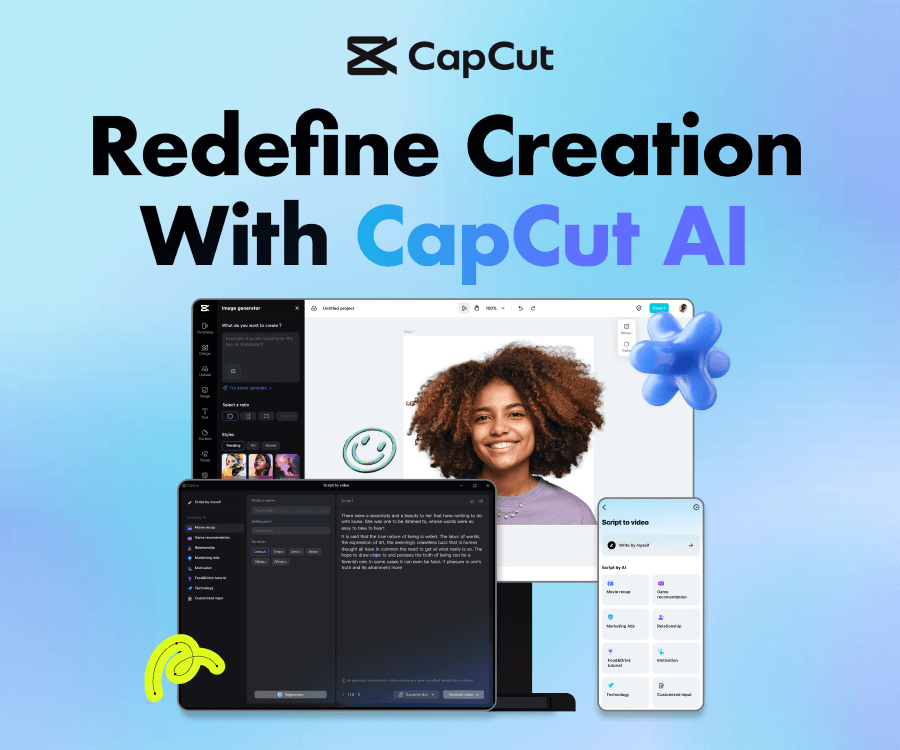Voice technology has evolved dramatically in the past few years, making it possible to generate speech that sounds incredibly human. Whether you’re interested in creating voiceovers, dubbing videos, or just having fun with impressions, voice cloning tools have become more accessible than ever—and many of them are completely free.
In this guide, we’ll walk you through everything you need to know about voice cloning online and introduce you to some of the best platforms and techniques to help you sound just like your favorite celebrities, characters, or even yourself—but in a different language or style!
Table of Contents
- What Exactly is Voice Cloning?
- Fun and Practical Uses of Voice Cloning
- CapCut Desktop Video Editor: More Than Just Video Editing
- CapCut Online Video Editor: Free, Powerful, and Web-Based
- How to Clone a Voice Using CapCut’s Online Editor
- Other Free Voice Cloning Apps You Should Try
- Tips for Getting the Best Results with Voice Cloning
- Wrapping Up
What Exactly is Voice Cloning?
Voice cloning is a form of AI-based technology that creates a digital copy of a human voice. It captures not just the tone and accent, but also the subtle emotional nuances and speech rhythms that make each voice unique. This isn’t just about text-to-speech—it’s about making that speech sound real.
People use voice cloning for all sorts of reasons. Comedians use it for impersonations, marketers for personalized ads, podcasters for cleaner audio, and gamers just for fun. The best part? You don’t always need a big budget to get started.
Fun and Practical Uses of Voice Cloning
Here are some cool ways people are using voice cloning today:
Comedy and Entertainment: Imagine creating a skit where you imitate a famous actor or cartoon character. With a good voice mimicking app, you can make it happen—even if you can’t do the voice yourself.
Storytelling and Content Creation: Audiobook narrators and YouTubers use voice cloning to give different characters unique voices without needing a full cast.
Marketing and Advertising: Brands are starting to use personalized voiceovers in ads to better connect with their audiences.
Accessibility: Voice cloning can help people who have lost their voice due to illness recover a digital version of their original voice.
Education and Language Learning: Hearing text read in a natural, human-like voice makes learning more engaging.
CapCut Desktop Video Editor: More Than Just Video Editing
CapCut isn’t just a video editor—it’s packed with AI-powered voice tools that make it easy to create professional-level audio. Whether you’re using the desktop or online version, CapCut offers a range of features that help you modify, enhance, and clone voices.
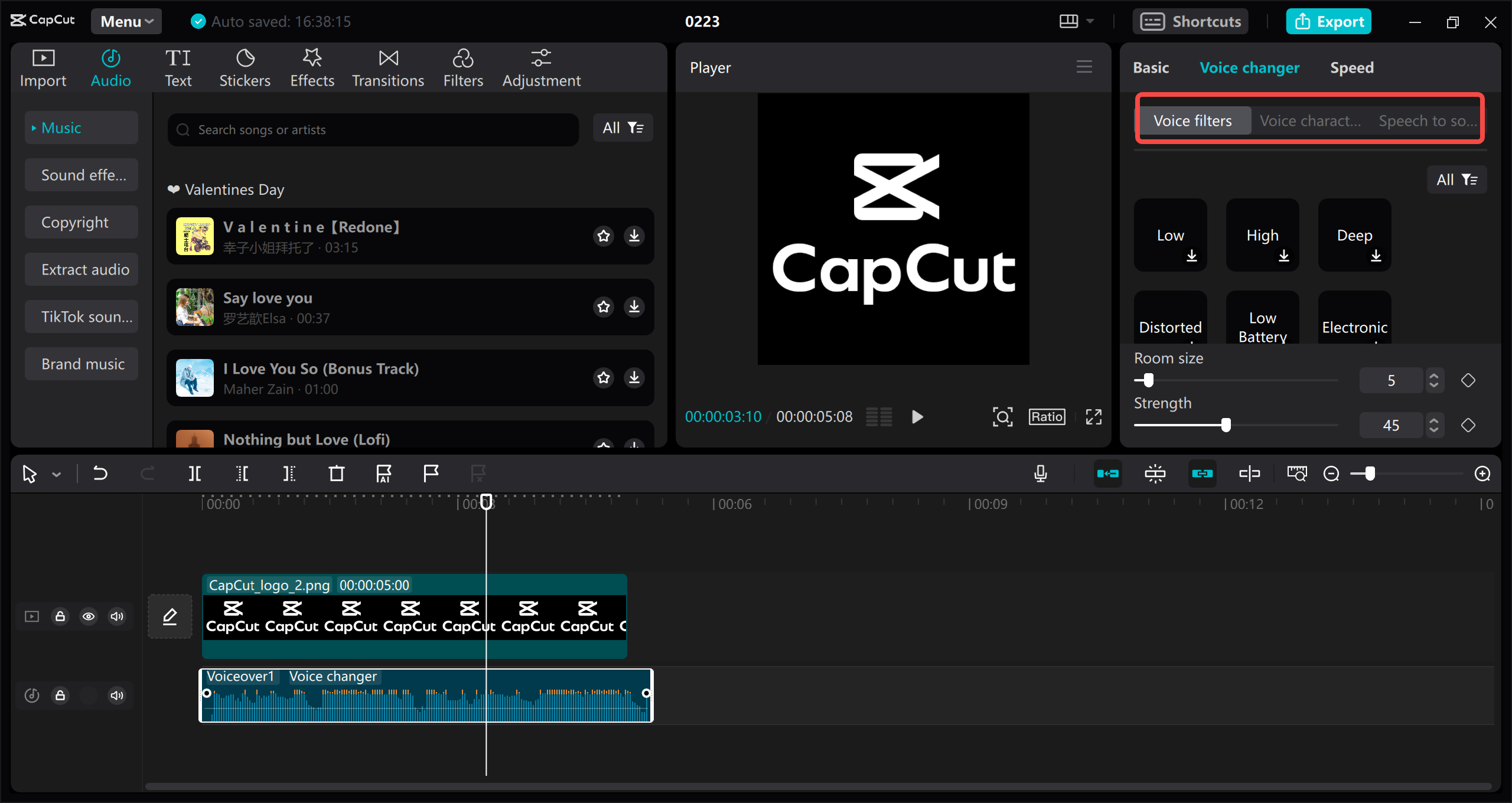
Key Voice Features in CapCut:
- Voice Filters: Change the tone, pitch, and style of any voiceover.
- Voice Characters: Switch between different personas—perfect for storytelling.
- Speech-to-Song: Turn spoken words into song-like audio with a folk touch.
- Voice Enhancement: Reduce background noise and improve clarity.
These tools are designed to be user-friendly, so even beginners can make high-quality voice modifications without a steep learning curve.
CapCut Online Video Editor: Free, Powerful, and Web-Based
If you don’t want to download software, CapCut’s online video editor has you covered. It supports voice cloning online through its text-to-speech (TTS) system, which includes a wide variety of voices and languages.
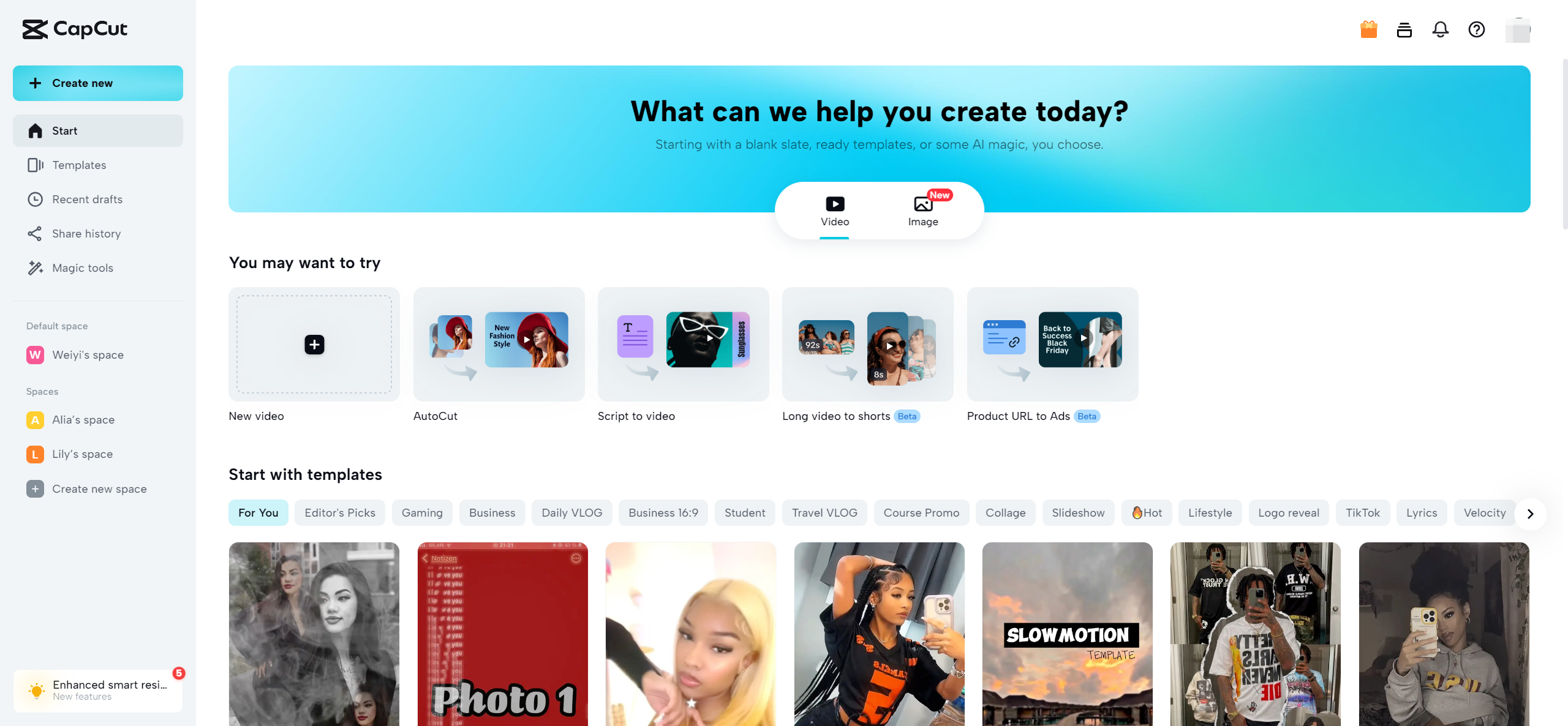
Why Content Creators Love CapCut’s Online Editor:
- It’s free.
- No installation needed.
- Supports over 20 languages.
- Offers voice customization (speed, pitch, tone).
- Includes fun voice effects like Santa, robot, anime, and more.
- Allows translation and dubbing in real-time.
Whether you’re making YouTube videos, TikTok content, or podcast episodes, CapCut provides an all-in-one platform for voice and video editing.
How to Clone a Voice Using CapCut’s Online Editor
Cloning a voice with CapCut is simple. Here’s how:
- Sign Up & Log In: Go to CapCut’s website and create an account.
- Start a New Project: Choose your video format or start from scratch.
- Upload or Record Audio: You can use existing audio or record directly.
- Use Text-to-Speech: Type your text, select a voice style, and let AI generate the speech.
- Customize: Adjust speed, pitch, and add effects if needed.
- Export: Download your audio or share it directly to social media.
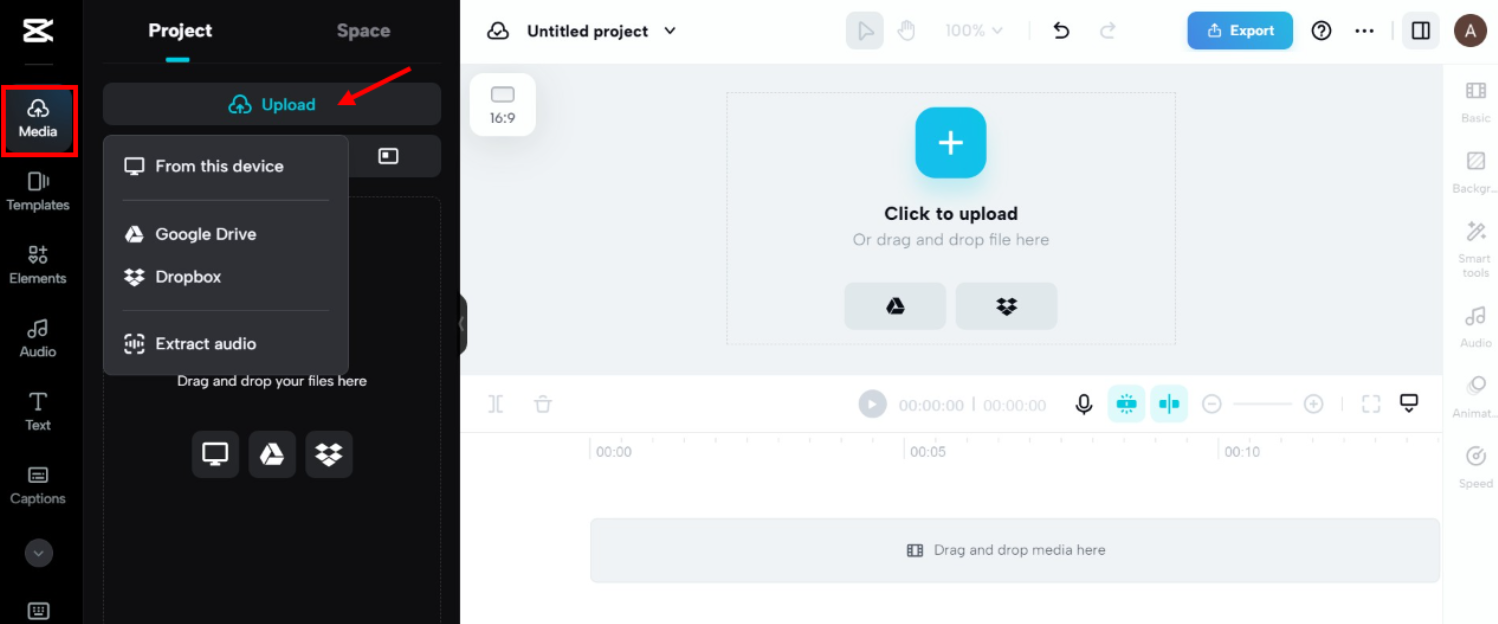
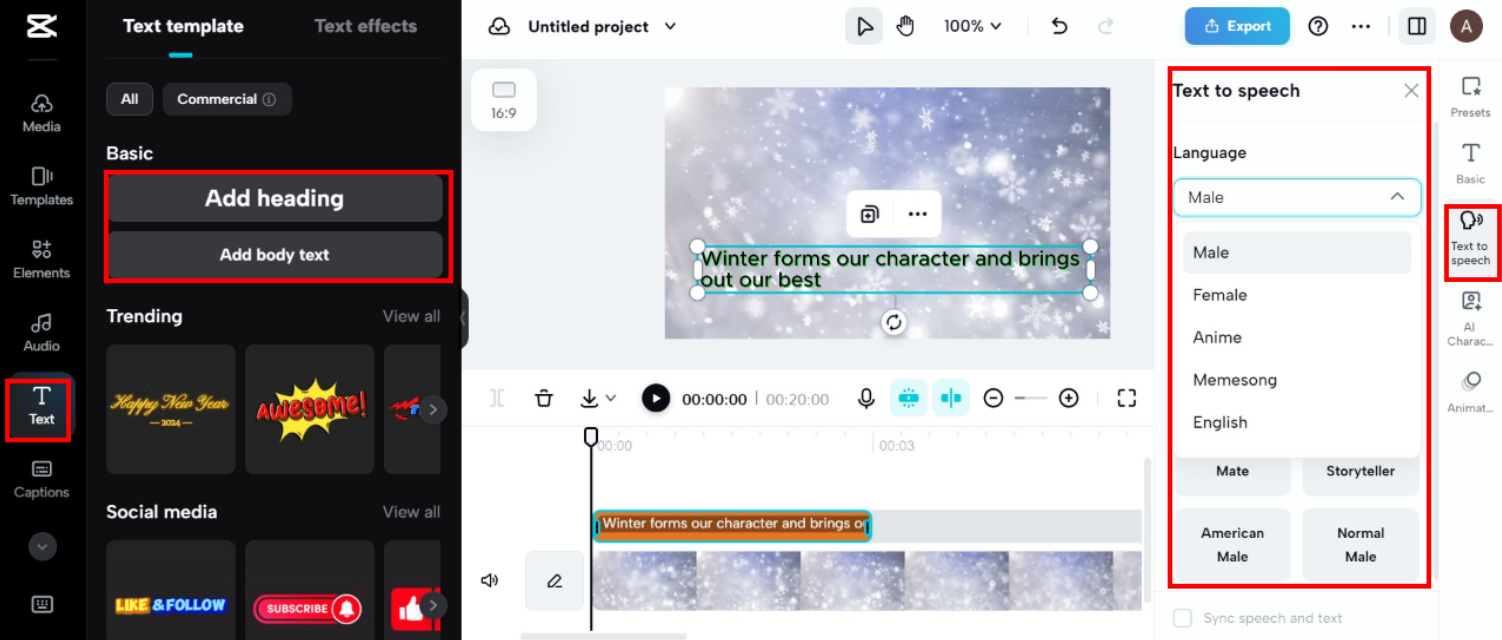
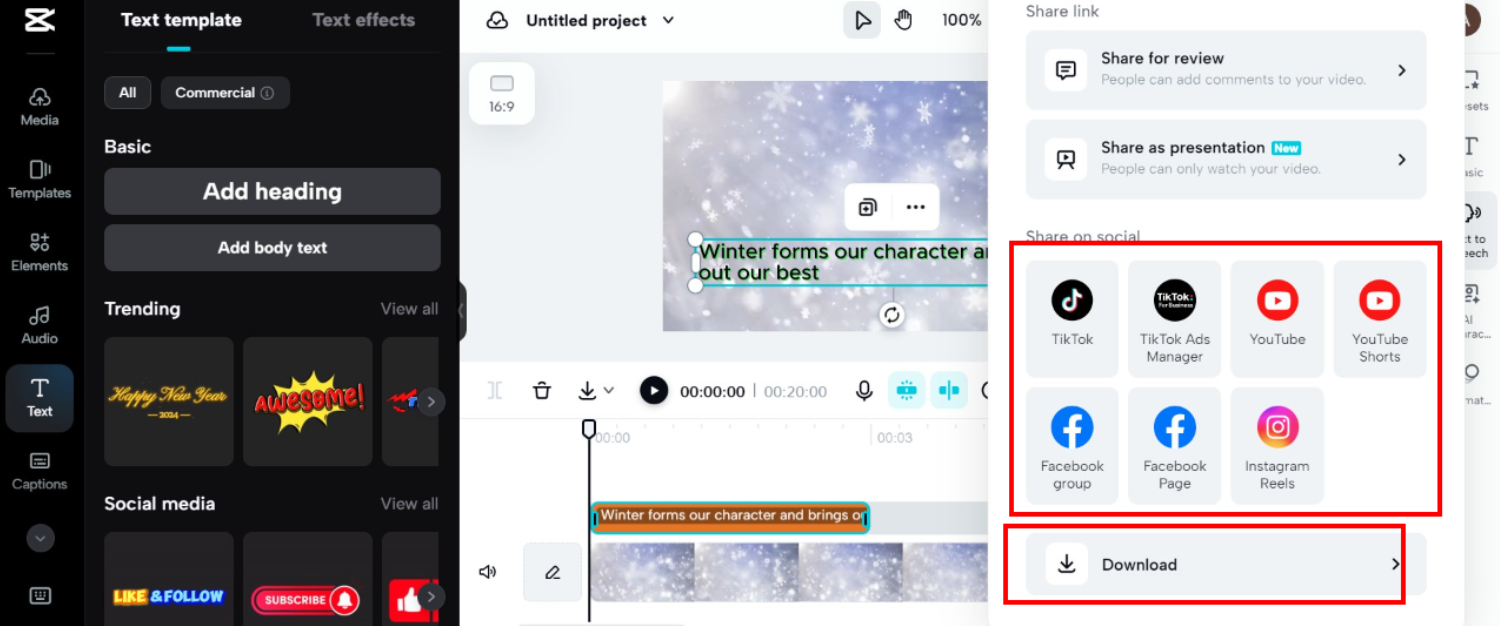
Other Free Voice Cloning Apps You Should Try
While CapCut is a great all-in-one tool, there are other free options worth exploring:
1. Voicemod
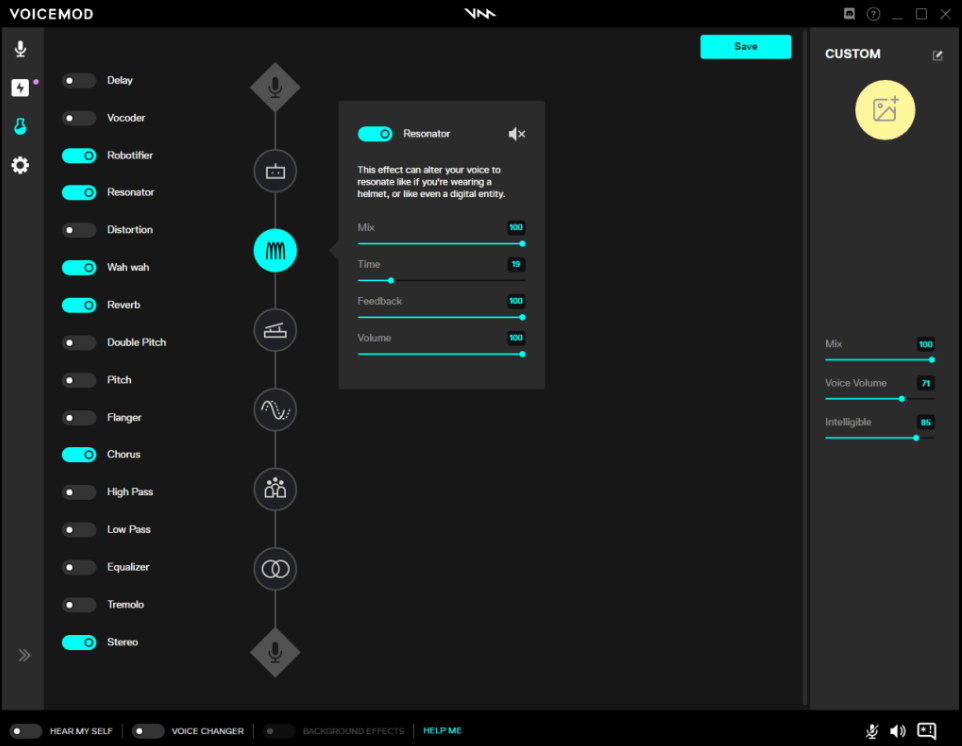
A real-time voice changer popular with gamers and streamers. It’s fun and easy to use but includes ads.
2. Respeecher
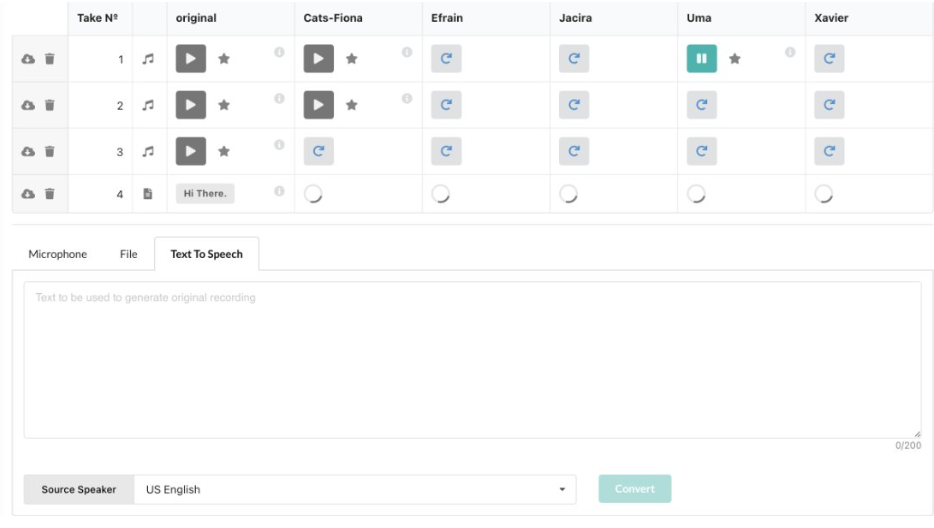
More advanced and used in professional settings like films and assistive speech technology. Requires good internet.
3. ElevenLabs
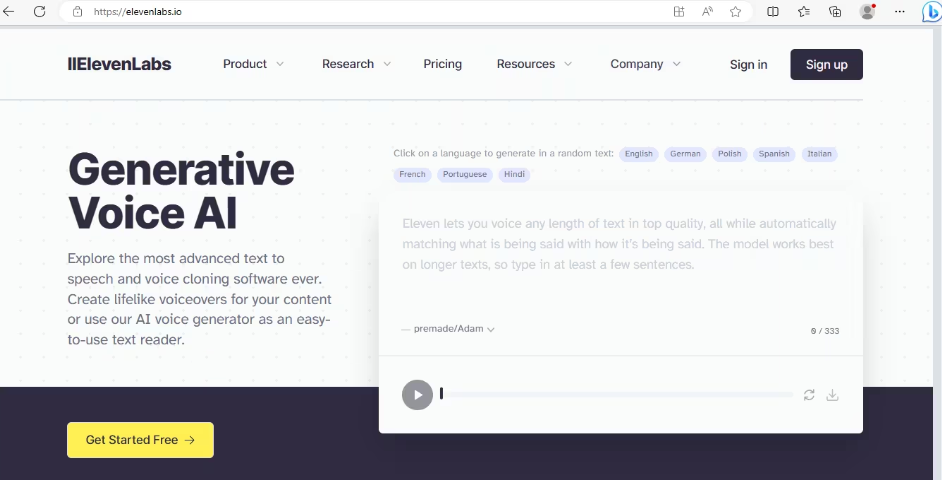
Known for highly realistic AI voices. Free tier available but limited.
4. Descript
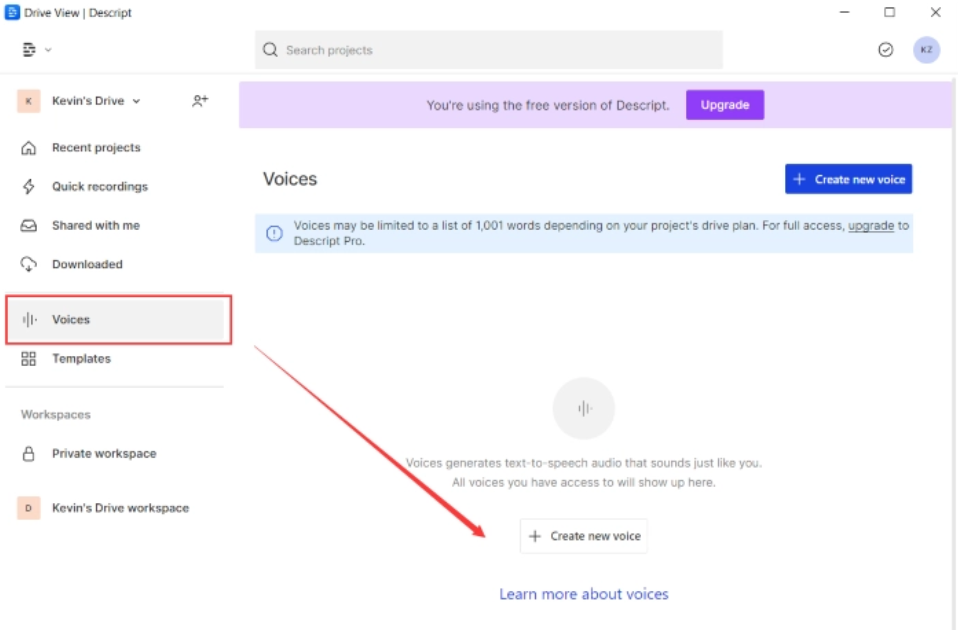
Great for podcasters. Its “Overdub” feature lets you clone your voice and edit audio like a text document.
5. Speechify
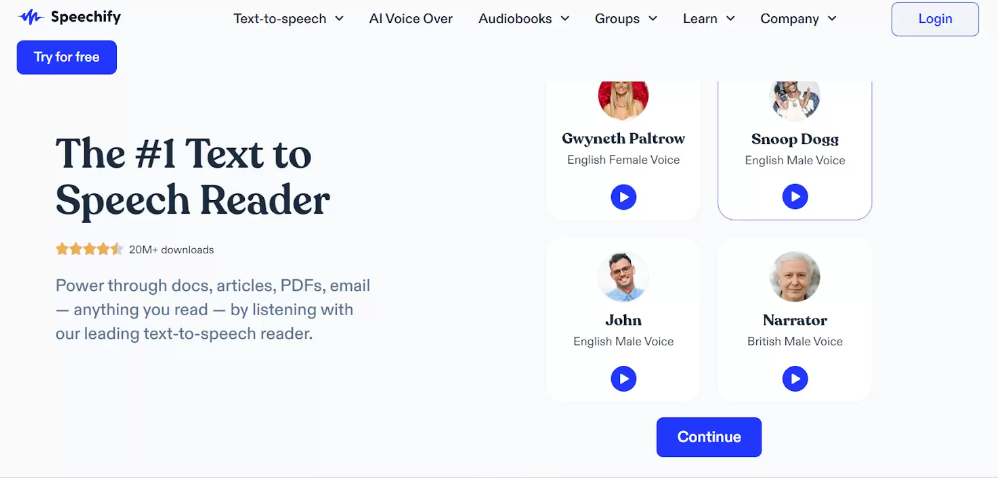
Ideal for converting text to audiobooks. Supports OCR for scanning books. Free version has a word limit.
Tips for Getting the Best Results with Voice Cloning
If you want your cloned voice to sound natural and convincing, keep these tips in mind:
- Use a Good Microphone: Clear audio input = better cloning results.
- Record in a Quiet Space: Background noise can ruin the sample.
- Speak Naturally: Use normal pacing and intonation.
- Experiment with Settings: Adjust pitch, speed, and tone to match the desired voice.
- Use High-Quality Formats: When possible, work with WAV or FLAC files instead of compressed formats like MP3.
CapCut — Your all-in-one video & photo editing powerhouse! Experience AI auto-editing, realistic effects, a huge template library, and AI audio transformation. Easily create professional masterpieces and social media viral hits. Available on Desktop, Web, and Mobile App.
Wrapping Up
Voice cloning is no longer science fiction—it’s a creative tool available to everyone. Whether you’re using CapCut’s powerful online editor or experimenting with other free platforms, you can start creating realistic voiceovers, fun content, and personalized audio projects today.
Remember: many of these tools are free to start, so you can practice and experiment without any risk. Happy cloning!
Frequently Asked Questions
Can I really clone a voice for free?
Yes! Platforms like CapCut, Voicemod, and Descript offer free versions that let you clone voices with few limitations.
Which voice cloning app is the easiest to use?
CapCut’s online editor is very user-friendly—especially if you’re already familiar with basic video editing.
Is voice cloning ethical?
Always get permission if you’re cloning someone else’s voice. Using the technology responsibly is key.
Do I need a powerful computer to use these tools?
Most online tools like CapCut run in your browser, so you don’t need a high-end device.
Some images used in this article are sourced from CapCut.
 TOOL HUNTER
TOOL HUNTER

